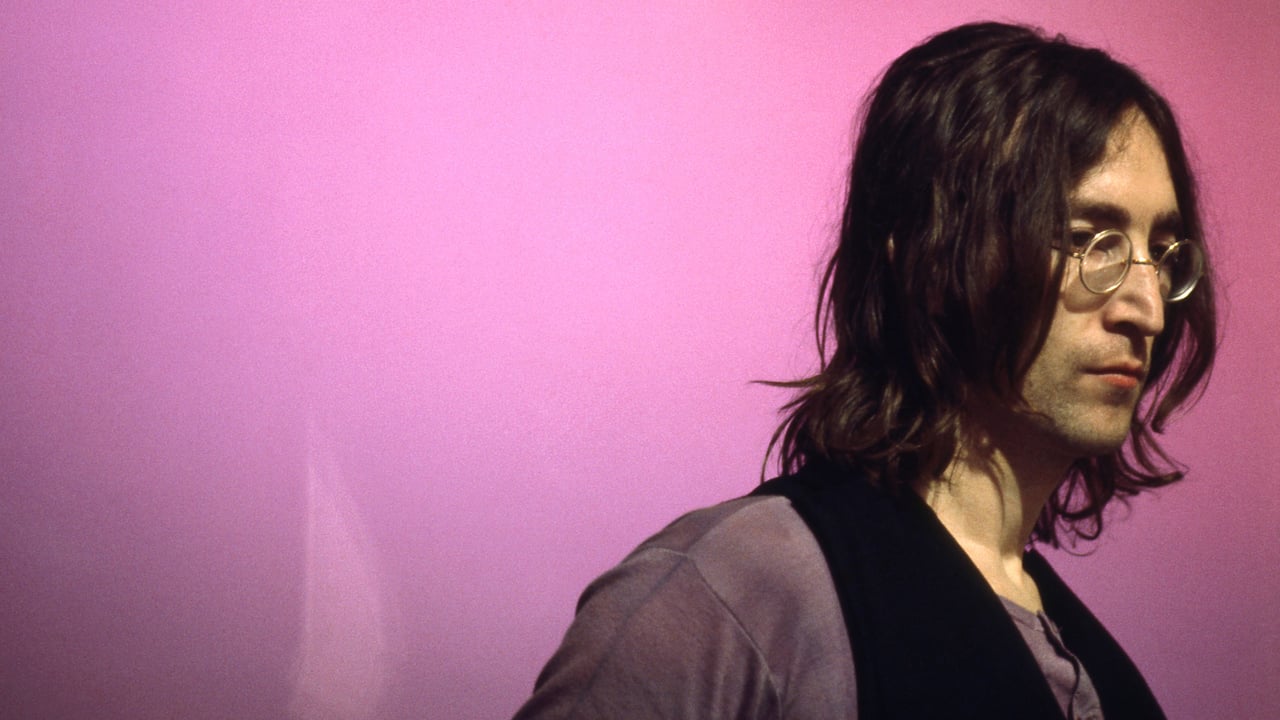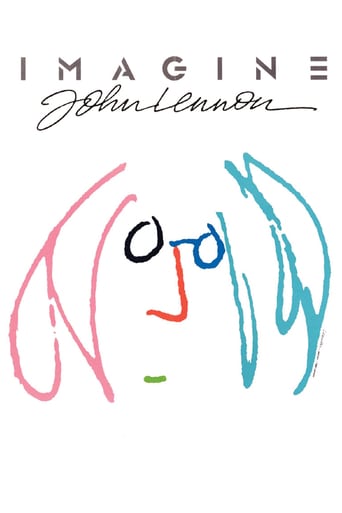



That was an excellent one.
Am i the only one who thinks........Average?
A film with more than the usual spoiler issues. Talking about it in any detail feels akin to handing you a gift-wrapped present and saying, "I hope you like it -- It's a thriller about a diabolical secret experiment."
View MoreIt is encouraging that the film ends so strongly.Otherwise, it wouldn't have been a particularly memorable film
View MoreAndrew Solt's "Imagine: John Lennon" is a documentary about the singer. There's plenty of focus on his music and activism, but mostly it looks at him as a person. In addition to the ample footage of John making his inimitable music and expounding on philosophy, there are interviews with people who knew him (Yoko, Sean, Cynthia, Julian). And the scene of John and Yoko's bed-in for peace makes clear that Al Capp was a real creep.Another documentary about Lennon that's worth seeing is "The US vs. John Lennon", about Nixon's efforts to keep him out of the country. Both documentaries note that, while Lennon got taken from us, his dream of world peace lives on. Indeed, political movements the world over take inspiration from him. May his memory live forever.Great documentary.
View MoreEight years after John Lennon's death, and seventeen years after John's most popular solo album "Imagine" came out, this documentary was released. It was 1988 and the shock of Lennon's murder was lessening, and then they released this. But this documentary wasn't made to make people feel sad, but instead, it showed John Lennon's life from his early days living with his aunt, to his days with the Beatles, to his radical solo work and life with Yoko Ono. John is put in neither a positive nor a negative light here, so you can make the decision yourself. Was John a nut case, or a genius, or both, or something completely different altogether? This documentary is full of old interviews, archive footage of the Beatles concerts, and along with that it has new interviews from Cynthia Lennon, Yoko Ono and Julian Lennon, among others. It shows John's time in the recording studio, and his life with Yoko and how much he loved her, and she loved him. It gives us interesting footage from his home too.The more interesting scenes in this film are one's that we wouldn't normally see. A bum was walking around in Lennon's flower garden, and John asks him why, and this man believes John is writing his music for this man. They end up inviting him in for some lunch. That was probably the best scene in the movie, and the one that described John's overall attitude throughout his life. He was writing for himself, and for his wife, but if any other person felt personally touched by his music, then his message was universal. As shown in this movie, it wasn't his goal to reach others, only himself.All of John and Yoko's more artistic moments are featured here too, including their bed in's, and their artistic ideas like covering themselves with a blanket so no one can see what they look like. During their bed-in, they invited over Al Capp, creator of the Lil Abner cartoon strips, and he tries his hardest to rip them to pieces, which is irritating, but yet again, one of the best scenes in the movie.This documentary has some really neat footage, and that's the stuff that makes this good. The 1988 interviews were interesting on giving insight, but the footage from Lennon's solo work prime in the early 70's is what shows what he was about, and is what makes this documentary.My rating: *** out of ****. 100 mins. Not rated, contains language and nudity.
View MoreThe 1960's and 70's were a time of change uncertainty for our country. War waged on in Vietnam, the "hippie" era was in bloom, and there was of course the music. There was only one voice heard in all of these areas: John Lennon.Imagine: John Lennon is Andrew Solt's documentary about the rock legend John Lennon. It spans over 40 years from his early days in Liverpool and Hamburg to that fatal December night in New York City, 1980. It showcases his musical talent and outspokenness for peace, love, and music.The movie goes back and forth from John Lennon's home recording studio in 1973 to Lennon's life story. It's an interesting way of telling a man's life. The first half is mostly about the rise of The Beatles. Starting in Liverpool, bassist Paul McCartney, guitarist George Harrison, and drummer Ringo Starr create a sound that will rock the world. They go from playing small, rowdy venues in Liverpool and Hamburg, to the "big time".Their album "Meet the Beatles" is just the ticket they need to make it across the pond to the US. Beatlemania is reaching critical mass and Lennon was having difficulties controlling his personal life and his life on the road. His wife Cynthia and son Julian have to be second to the band. Cynthia won't stick around for long, she eventually asks him for a divorce.As The Beatles begin to experiment in drugs, there music too sounds a little experimental. Using many different sounds and beats, they will once again have a rock and roll revolution. Their album Sgt. Pepper's Lonely Heart's Club Band became one of their most famous. But all isn't "Strawberry Fields" in the studio. With Lennon's latest girl Yoko Ono, the band feels like she is impeding on their creativity. After more than 10 years together, The Beatles are no more.This was not the end for Lennon. Solt goes way beyond The Beatles in this movie. He shows us his private life with home videos and interviews with Yoko, Julian, his other son Sean, and close friends of the family.For fans of The Beatles and of Lennon, this movie is ideal. It's a great look into the life of the legendary singer/song writer. The music is fantastic and the movie itself is well put together. For those who have some interest in this subject, the movie may be slightly boring.The one thing you can't overlook is Lennon's impact on pop culture. He was the voice of a generation that wanted nothing more than to, "give peace a chance". It seems like everything he did had some meaning behind it. He wrote songs about his kids, about his father, and about Yoko. He also had many politically charged songs and some "choice" album covers.This documentary was cleverly done and well put together. Although it at times has some not so interesting information, for the most part it is a fantastic look into the life of a cultural icon.
View MoreThis documentary is seriously lacking, even given the nature of the form. Even as a look at just his post-Beatles career, this completely distorts Lennon's life. Granted, you couldn't possibly encompass the full John Lennon story in a couple of hours of footage. Choices must be made. And therein lies the problem.Some of the choices in this documentary are good. I especially like footage of Lennon dancing home in a white suit with Yoko, apparently after getting married and looking quite stoned. There is some choice footage of Lennon interacting with fans, some of whom are quite bizarre. And there is a very interesting piece of footage showing Lennon singing one of his anti-Paul McCartney songs in a session that he ends abruptly after calling Paul a vile name.Which brings me to the bad choices. They are choices of omission. What is the one thing a person might want to know about John's life? I think a good question would be, "How did you really feel about Paul McCartney and the breakup of the Beatles." That question, or any like it, is not posed. Lennon is simply shown reading about the Beatles breakup in the newspaper as if he were an absolute bystander to the whole thing. At one point, Lennon is quoted as saying that he and McCartney are "fine," and at another, he is shown swearing at him. That is about the extent of it. Something is amiss. One of the most important partnerships in music history is given glancing treatment. Lennon, at least at one time, had hurt feelings. Why? And why is McCartney glaringly absent?Well, a fellow by the name of Elliot Mintz is listed prominently in the credits as a "Consultant." He even is interviewed to give his opinions about John (as opposed to interviewing, say, Paul, or even George or Ringo). Who is Elliot Mintz? Well, a close associate of Yoko's. That might explain why footage is selected to make her look like a victim, as with the famous Al Capp "debate" footage in which professional provocateur Capp says what many people of the time thought (negatively) about Yoko, and why McCartney and Lennon's work together is pointedly ignored throughout the film. How you could possibly think you could have a balanced presentation of John Lennon without including his relationship with his boyhood friend and adult writing partner is beyond me. Yoko (Mintz) obviously thought differently. Lennon himself said, in his last interview, that he had had two dominant relationships in his life: Yoko, and Paul. We are shown only one. I wonder why.Of course, one could be cynical and observe that as Yoko increased her influence, John's interest in mass-appeal non-political music declined and his political agitprop activities soared. And, one could further reason that those two indisputable facts are likely not coincidental. And then, one might conclude that Yoko viewed John's political activism as a reflection of her influence over him, his devotion to her, and thus "their" shared history, while relegating Lennon's work with The Beatles to the dustbin (because it did not include her). And thus, we have the reason underlying this work's orientation, given Mintz's control, on John as political renegade rather than as groundbreaking musician. Imagine that Yoko is showing off her own creation here.Capp, who admittedly comes across as a sneering blow-hard, touches on a good point, incidentally. What did Lennon mean in "The Ballad of John and Yoko" when he said "they" are "gonna crucify me"? Why would he use that imagery only a few years after the famous "Jesus" comment that caused so much trouble? Lennon just blows Capp off, that one hit a little close to home, I think. Another interviewer practically does a follow-up, likely years later, taking some pointed shots at Lennon as having become little more than a cynical self-promoter with all of his fairly empty and extravagant peace gestures. His non-answer to her is one of the more revealing parts of the documentary. I'm sure it was put in there, though, to elicit a completely different response from the audience ("Look how much a martyr John became because they never understood his important work for peace").Somewhat perversely, in tune with this work's obvious attempt to canonize Lennon for his political outspokenness while treating his music as little more than his day job, the footage selected indeed does tend to suggest that his primary legacy is as a self-promoter and activist rather than as a musician. Talk about turning reality upside down.... I doubt that is the message that would come across in a more balanced presentation. I do understand, though, why the people who control his estate would portray him that way.Documentaries are more about the living than the dead. The real summary of Lennon's work has yet to be made and won't happen until everyone with personal agendas departs the scene.
View More